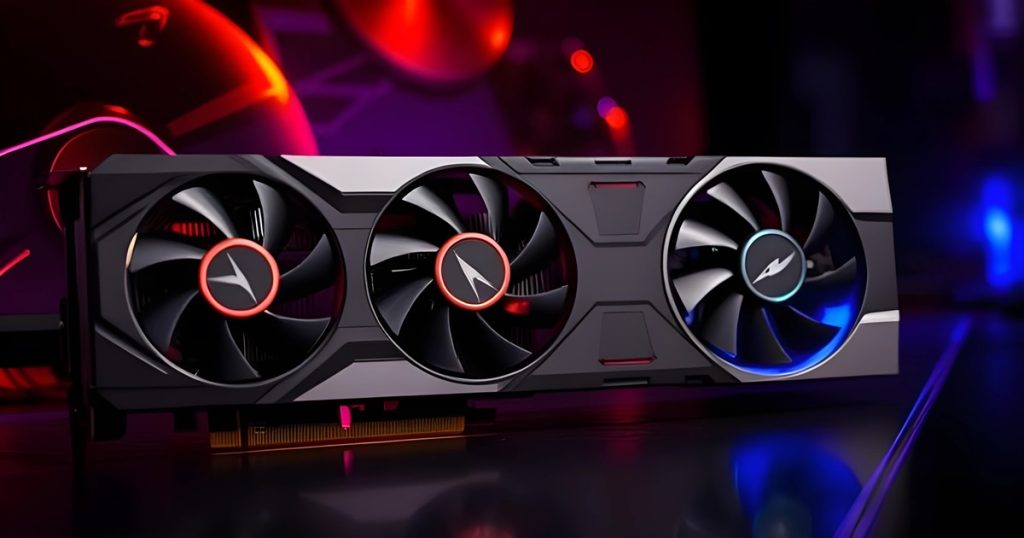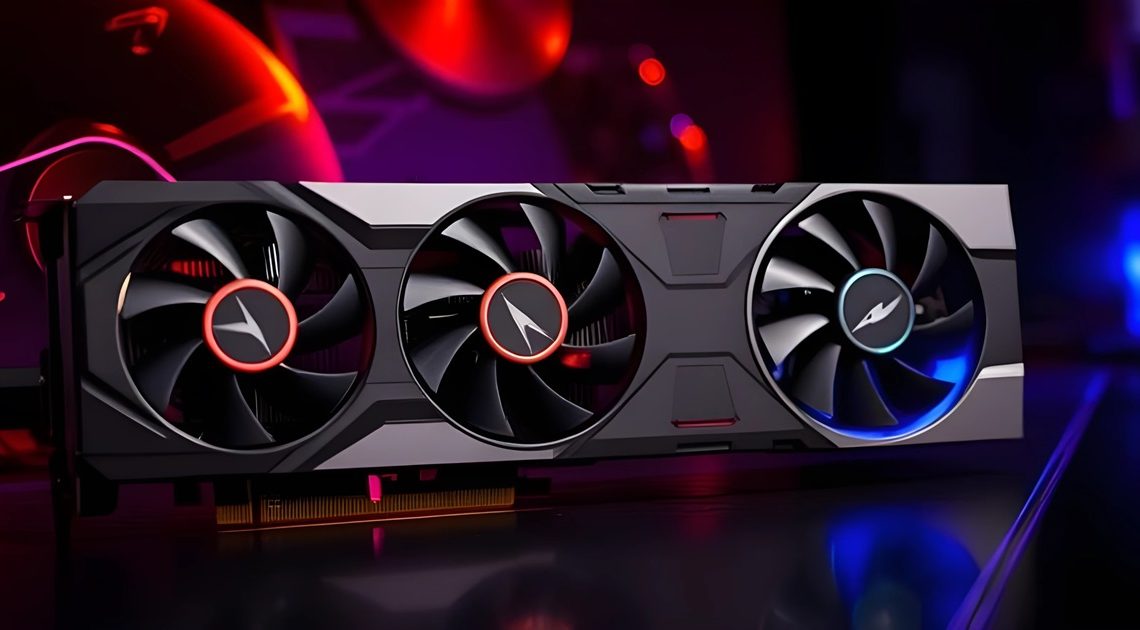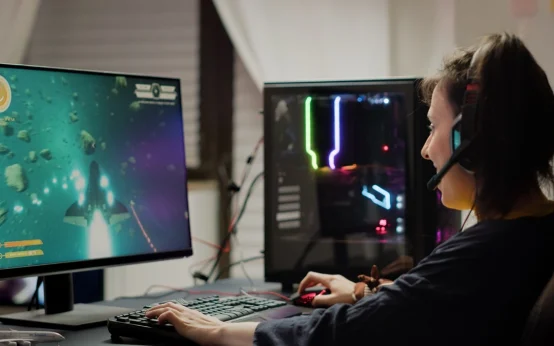The world of gaming is evolving at an unprecedented pace, and 2025 promises to be a landmark year for gaming PCs. With cutting-edge technology pushing the boundaries of performance, graphics cards remain the heart of any gaming rig. Whether you’re a casual gamer or a hardcore enthusiast, choosing the best graphics cards for your setup is crucial to unlocking the ultimate gaming experience. This guide dives deep into the top graphics cards of 2025, helping you make an informed decision for your gaming PC.
Why Graphics Cards Matter in 2025
Graphics cards are the backbone of any gaming PC, responsible for rendering stunning visuals, enabling smooth gameplay, and supporting advanced features like ray tracing and AI-driven upscaling. In 2025, the demand for high-performance GPUs has skyrocketed, thanks to the rise of 4K and 8K gaming, virtual reality (VR), and immersive gaming environments. Graphics cards not only deliver exceptional frame rates but also future-proof your system for upcoming game releases.

Top Graphics Cards to Watch in 2025
The GPU market is constantly evolving, with manufacturers pushing the limits of performance, efficiency, and new technologies. Whether you’re a gamer, content creator, or AI enthusiast, keeping an eye on the latest graphics cards is crucial. In 2025, we expect some groundbreaking releases from NVIDIA, AMD, and Intel that could redefine the industry. Below, we explore the most anticipated GPUs of the year and what they bring to the table.
1. NVIDIA GeForce RTX 5090
NVIDIA continues to dominate the GPU market, and the GeForce RTX 5090 Graphics Card is their flagship offering for 2025. Built on the advanced Ada Lovelace architecture, this card boasts unparalleled performance for 4K and 8K gaming. With features like DLSS 4.0 and real-time ray tracing, the RTX 5090 is a powerhouse for gamers and content creators alike.
| Specification | Details |
|---|---|
| GPU | NVIDIA GB202 (Blackwell) |
| CUDA Cores | 21,760 |
| Memory | 32 GB GDDR7, 28 Gbps |
| Memory Bandwidth | 1,792 GB/s |
| TDP | 575 W |
| Release Date | January 30, 2025 |
| MSRP | $1,999 |
- Key Features:
- 32GB GDDR7 memory
- DLSS 4.0 for AI-enhanced performance
- Ray tracing and path tracing support
- 4K gaming at 240Hz
- Why It’s Great:
The RTX 5090 is perfect for gamers who want the absolute best in visual fidelity and performance. Its AI-driven capabilities ensure smooth gameplay even in the most demanding titles.
2. AMD Radeon RX 9070 XT
The AMD Radeon RX 9070 XT is one of the latest additions to AMD’s high-performance graphics card lineup, delivering cutting-edge gaming experiences powered by the advanced RDNA 4 architecture. Designed to compete with NVIDIA’s high-end GPUs, the RX 9070 XT brings impressive performance, efficiency, and affordability to the table.
Key Specifications:
- Architecture: RDNA 4
- GPU: Navi 48 XTX
- Process Node: 5nm
- Compute Units (CUs): 64
- Shading Units: 4,096
- Ray Accelerators: 64
- Base Clock Speed: 1,660 MHz
- Boost Clock Speed: Up to 2,970 MHz
- Memory: 16GB GDDR6
- Memory Bus: 256-bit
- Memory Bandwidth: 644.6 GB/s
- TDP (Power Consumption): 304W
- Recommended Power Supply: 700W
- Connectivity: 1× HDMI 2.1b, 3× DisplayPort 2.1a
Performance and Benchmarks:
The Radeon RX 9070 XT is designed for high-resolution gaming, delivering smooth performance at 1440p and even 4K in many modern titles. Benchmark results place it ahead of the NVIDIA RTX 5070 Ti and on par with the RTX 4080 in select games. The GPU achieves an average of 120+ FPS in 1440p gaming and 80+ FPS at 4K resolution, making it an excellent choice for both competitive and immersive gaming experiences.
Gaming Benchmarks:
- Cyberpunk 2077 (1440p, Ultra, RT Off) – 135 FPS
- Call of Duty: MW3 (1440p, Ultra) – 145 FPS
- Hogwarts Legacy (4K, High) – 87 FPS
- Assassin’s Creed Mirage (4K, Ultra) – 78 FPS
3. Intel Arc B580
The Intel Arc B580 is a performance-segment graphics card introduced on December 13, 2024, as part of Intel’s “Battlemage” series. It is built on the 5 nm process and based on the BMG-G21 graphics processor, featuring 19.6 billion transistors and a die size of 272 mm².
Key Specifications:
- Architecture: Intel Xe2-HPG
- GPU Cores: 2,560 shading units, 160 texture mapping units, and 80 render output units
- Ray Tracing Units: 20
- Tensor Cores: 160
- Base Clock Speed: 1,700 MHz
- Boost Clock Speed: Up to 2,670 MHz
- Memory: 12 GB GDDR6
- Memory Interface: 192-bit
- Memory Bandwidth: 456 GB/s
- TDP (Total Power Draw): 190W
- Process Technology: 5 nm
NVIDIA RTX 5090 vs. AMD RX 9070 XT vs. Intel Arc B580
Comparison of the NVIDIA GeForce RTX 5090, AMD Radeon RX 9070 XT, and Intel Arc B580 graphics cards:
| Specification | NVIDIA GeForce RTX 5090 | AMD Radeon RX 9070 XT | Intel Arc B580 |
|---|---|---|---|
| Architecture | Blackwell GB202 | RDNA 4 Navi 48 XTX | Xe2-HPG BMG-G21 |
| CUDA / Shading Units | 21,760 CUDA cores | 4,096 shading units | 2,560 shading units |
| Tensor Cores | 680 | N/A | 160 |
| Ray Tracing Cores | 176 | 64 | 20 |
| Base Clock Speed | 2.01 GHz | 2.52 GHz | 1.70 GHz |
| Boost Clock Speed | 2.41 GHz | 2.97 GHz | 2.67 GHz |
| Memory Capacity | 32 GB GDDR7 | 16 GB GDDR6 | 12 GB GDDR6 |
| Memory Interface | 512-bit | 256-bit | 192-bit |
| Memory Bandwidth | 1,792 GB/s | 576 GB/s | 456 GB/s |
| Transistor Count | 92.2 billion | 53.9 billion | 19.6 billion |
| Die Size | 750 mm² | 357 mm² | 272 mm² |
| TDP (Total Power Draw) | 575W | 304W | 190W |
| Process Technology | 5 nm | 4 nm | 5 nm |
| Release Date | January 30, 2025 | March 6, 2025 | December 13, 2024 |
| Launch Price | $1,999 aprx | $599 aprx | N/A |
Additional Features:
- NVIDIA GeForce RTX 5090:
- Supports DLSS 4 technology, offering significant performance improvements through AI-driven upscaling.
- Equipped with NVIDIA Reflex 2 and RTX Neural Shaders to reduce latency and enhance graphics.
- AMD Radeon RX 9070 XT:
- Features FSR 4 technology for enhanced AI upscaling.
- Includes a new media engine for improved gameplay recording quality.
- Intel Arc B580:
- Details on additional features are limited based on the available information.
These specifications highlight the strengths of each graphics card, catering to different performance needs and price points.
Factors to Consider When Choosing a Graphics Card
Performance
When selecting the best gaming graphics card, performance is paramount. Consider the resolution you plan to game at (1080p, 1440p, or 4K) and the frame rates you desire. High-end cards like the RTX 5090 are ideal for 4K gaming, while mid-range options like the RX 9070 XT excel at 1440p.
Ray Tracing and AI Features
Ray tracing has become a standard in modern gaming, offering realistic lighting and reflections. AI-driven features like DLSS and FSR enhance performance by upscaling lower-resolution images. Ensure your chosen GPU supports these technologies for a future-proof setup.
Budget
Graphics cards come in a wide range of prices, from budget-friendly options to premium models. Determine your budget and prioritize features that matter most to you. While high-end cards offer the best performance, mid-range GPUs provide excellent value for money.
Compatibility
Ensure your chosen GPU is compatible with your system’s power supply, motherboard, and case. High-performance cards often require additional power connectors and sufficient cooling.
Emerging Trends in Graphics Cards for 2025
1. AI-Driven Upscaling
AI technologies like DLSS and FSR are revolutionizing gaming by improving performance without sacrificing visual quality. These features are becoming standard in modern GPUs, making them a must-have for gamers.
2. Ray Tracing and Path Tracing
Ray tracing has evolved into path tracing, offering even more realistic lighting and shadows. The best graphics cards of 2025 support these advanced rendering techniques, enhancing immersion in games.
3. Increased VRAM
As games become more graphically demanding, the need for higher VRAM grows. GPUs with 16GB or more of memory are ideal for future-proofing your system.
4. Energy Efficiency
With rising energy costs, manufacturers are focusing on creating more energy-efficient GPUs. Cards like the RTX 5090 and RX 8900 XT offer improved performance per watt, reducing power consumption.
Conclusion
Choosing the graphics card for your gaming PC in 2025 is a critical decision that can significantly impact your gaming experience. Whether you opt for the powerhouse NVIDIA RTX 5090, the value-packed AMD RX 9070 XT, or the competitive Intel Arc B580, each card offers unique features to suit different needs and budgets. Stay ahead of the curve by considering emerging trends like AI upscaling, ray tracing, and increased VRAM. With the right GPU, you can unlock the full potential of your gaming PC and enjoy immersive, high-performance gaming for years to come.
FAQs
The NVIDIA GeForce RTX 5090 is the top choice for 4K gaming, offering unmatched performance and support for advanced features like ray tracing and DLSS 4.0.
Absolutely. Ray tracing and path tracing have become standard in modern games, offering realistic lighting and reflections that significantly enhance visual quality.
For future-proofing, aim for a GPU with at least 16GB of VRAM. This ensures your system can handle increasingly demanding games and applications.
Both NVIDIA and AMD offer excellent GPUs in 2025. NVIDIA leads in AI-driven features like DLSS, while AMD provides great value with its FSR technology. Your choice depends on your budget and preferences.
While a high-end GPU can work with a mid-range CPU, it may bottleneck performance. For optimal results, pair your GPU with a compatible, high-performance CPU.
By staying informed and choosing the right graphics card, you can build a gaming PC that delivers exceptional performance and future-proofs your setup for years to come. Happy gaming!

 The Best High-End Gaming PC for 2025
The Best High-End Gaming PC for 2025 